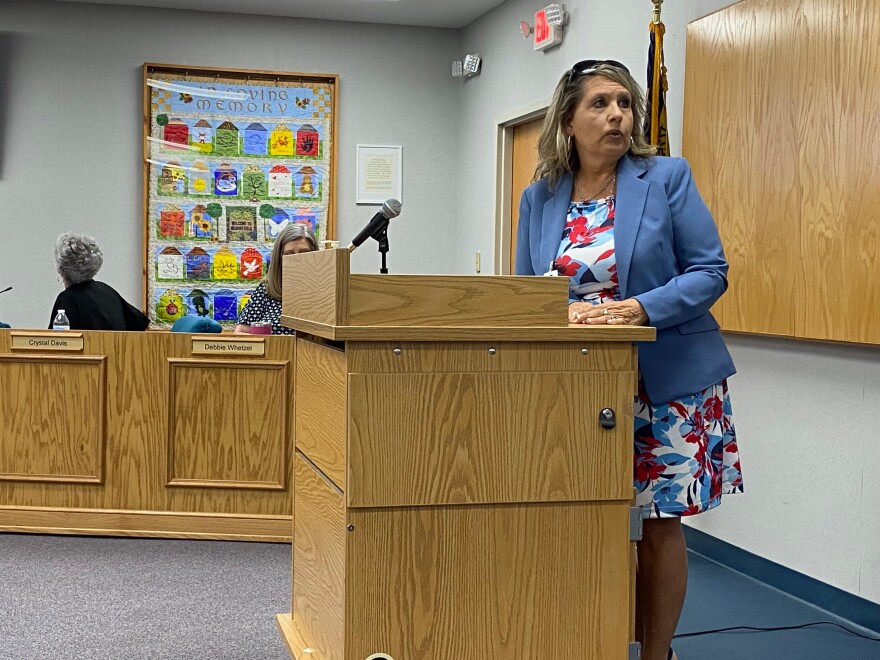This article originally appeared in WFAE reporter Ann Doss Helms' weekly education newsletter. To get the latest school news in your inbox first, sign up for our email newsletters here.
While I was planning a trip to Newton to check out the book battles taking place in Catawba County Schools, Brooke Weiss of Mecklenburg County’s Moms for Liberty chapter told me she had started filing daily book challenges in Charlotte. As I was working on the Catawba County story, she was sending me passages of sex scenes from half a dozen young adult novels she wanted restricted.
The details vary by location: Catawba County has Mama Bears instead of Moms for Liberty. Catawba’s book protests draw a lot of religious comments, while Mecklenburg’s strike a secular note. The two districts have different rules for challenging library and classroom material.
But there are common threads to the book challenges taking place across the country. Among the most significant: They’re not fueled by a surge of students coming home traumatized or titillated by what they found in the library, but by adults networking to share problematic material they’ve found in books that are available in schools.
Michelle Teague, a Catawba County school board member who has challenged 25 books, says she started by finding reviews on BookLooks.org, which rates books on a six-point scale for content related to sex, nudity, profanity, hate and violence. It offers “book reports” that steer users to all questionable passages (here’s one for “Monday’s Not Coming” by Tiffany D. Jackson, which was challenged in Catawba County) and “slick sheets” that give a more striking presentation to the racist parts of some books (here’s one for “A Court of Mist and Fury" by Sarah J. Maas being challenged in Mecklenburg and Catawba).
And there’s no doubt: Those passages are vulgar, profane and/or erotic. But there’s something bizarre about adults passing around “dirty bits” of books, just like some of us did when we stumbled across something spicy in middle school. Catawba County’s book challenge forms ask what the challenger believes is the theme and purpose of the material being questioned. In each case, Teague wrote N/A, for “not applicable.”
But surely context does matter. It’s a point Laura Eckard made at the Catawba County school board meeting when she read from Ezekiel 23:17-21, the story of two adulterous sisters. It includes references to lust, promiscuity, nudity and men whose anatomy is comparable to donkeys.
Her point: It sounds awful when read aloud, but surely no one would argue that teens should be denied access to the Bible. She and other speakers argued that the same is true of literature: Coarse language and descriptions of sexuality can be part of a valuable package.
A good use of time?
There’s another question of context raised by these widespread book challenges: Is this the best use of time for educators and school boards?
I’ve said before that I think there’s room for legitimate debate over some of the material that’s turning up in school libraries. But setting priorities inevitably involves competition for time.
When a steady stream of challenges starts taking up thousands of staff hours, as it has in Catawba County, you have to wonder if searching out F-bombs in print is as meaningful as, say, helping students read better.
For instance: just less than half of all elementary and middle school students in Catawba County Schools earned grade-level reading scores last year, and slightly more than one-third of high school students got a college-and-career-ready score in English II. And that’s not to dump on Catawba County; state averages are very similar.
I had hoped to talk to Teague and her Mama Bears colleagues about their big-picture strategies and priorities. Their opponents are eager to speculate on their motives, but despite my best efforts, the Mama Bears took a pass on telling me their story.





